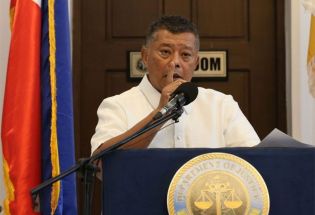DOST assures public food products from Japan safe
MANILA, Philippines - The Philippine Nuclear Research Institute (PNRI) of the Department of Science and Technology (DOST) yesterday assured the public that food products from Japan are safe for consumption, as they would not have been exposed to any radioactive contamination.
Leonardo Leopando, head of the PNRI’s Reactor Operations Section, said there is no evidence that food products from Japan are contaminated with radioactive particles from the earthquake-damaged Fukushima Daiichi nuclear power plant.
Officials and personnel from Bureau of Quarantine at the Ninoy Aquino International Airport (NAIA) terminals are on a “precautionary watch” on all frozen meat, fish, animals and other agricultural products coming from Japan on fears of radiation contamination.
Dr. Simeon Amurao, chief of Animal Quarantine under the Department of Agriculture, said personnel are advised to be more vigilant on frozen products from Japan that passengers might bring into the country.
Amurao said incoming passengers bringing in a few kilos of frozen meat, fish, animal and other agricultural products from Japan should have the products taken to the PNRI for clearance that these are fit for human consumption.
Amurao added that they would strictly implement the “no permit, no products” policy in all airports in the country and appealed to the public not to bring any of these items from Japan.
Science Secretary Mario Montejo, however, said there is no need to scan returning Filipinos and other foreigners arriving from Japan, as well as Japanese products, at the airports for radiation at this time.
Montejo said radioactivity levels in Japan are not high enough to affect food and agricultural products, at least as of Wednesday.
He added most of the food resources that would likely be affected by the radiation are vegetables planted close to the nuclear power plant, adding that these are not being exported.
The DOST officials maintained there is no immediate threat of radiation to the Philippines.
Vicente Malano, deputy administrator of the Philippine Atmospheric, Geophysical and Astronomical Services Administration, added radiation would not affect the country’s aquatic resources.
“Because the sea is very wide, if the radiation would penetrate the water, it would be diluted. So there is no need to worry about the possible adverse effects of radiation on our aquatic resources,” Malano explained.
Malano added the wind direction in Japan is eastward, or away from the Philippines.
DOST’s Science and Technology Information Institute director Raymund Liboro said the radioactive level in the country as of 9 a.m. yesterday remained normal, even as the government continues to monitor the situation in Japan. – With Rudy Santos
- Latest
- Trending






























